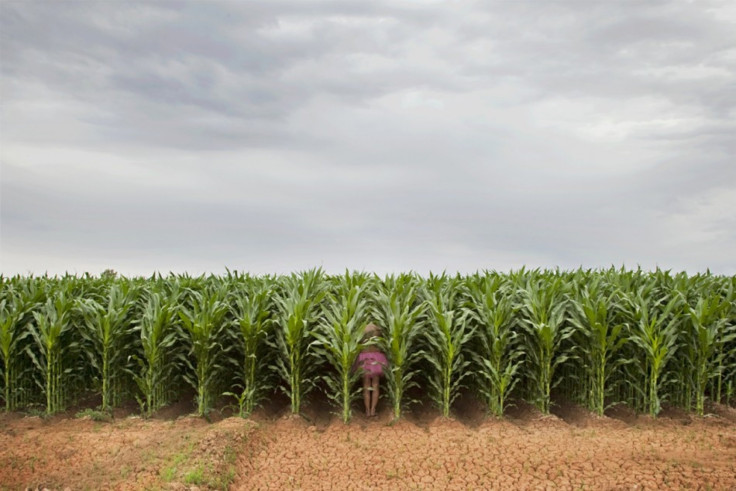Midwest Heat Wave Damages Crop Yields, Presses Food Prices

As the Midwest suffers through one of the most damaging heat waves in U.S. history, declining yields on crops could hurt the public by raising food and commodity prices to staggering proportions, according to commodities trading data.
Corn farmers are rubbing their eyes in surprise as a withering drought looms before them, threatening to devastate crop yields and the record-breaking 14.8 billion bushel corn crop harvest that was predicted just a few weeks ago.
Now, consumers could pay higher prices for cereals, snack foods, peanut butter and soft drinks -- foods where corn serves as a key ingredient, data from the Chicago Board of Trade suggest.
Corn for delivery in December rose $0.30, or 5.1 percent, closing at $6.24 per bushel. Corn prices, which surged 20 percent over the last three days alone, rose nearly 22 points to $6.56 per bushel late Monday. Soybean prices edged up 0.72 percent to $14.38 per bushel and wheat advanced 1.8 percent to $7.90 on the Chicago Board of Trade.
The first sales of this year's crops will be made against corn futures that have escalated 30 percent since mid-June.
The corn crop is entering the key pollinating and yield-setting period, and continued dry weather is a big concern for yields, analysts at Barclays Capital said. The optimistic scenario of agricultural surpluses that 2012 was supposed to herald may not transpire.
With temperatures hovering above 90 degrees Fahrenheit (32 degrees Celsius), sweltering heat and bone-dry weather are expected to lay siege to the Midwest this week, imperiling crops in fertile corn-growing states like Missouri, Illinois and Indiana, Telvant DTN said Monday. At least 71 percent of the region will be affected, according to data from the University of Nebraska at Lincoln.
Over the next three decades, climate change is likely to influence the volatility of corn prices to a far greater extent than oil prices, trade policies, government biofuel regulations and other related factors that have been held culpable for swaying the corn market, researchers predict.
The study, released earlier this year and published in the Nature Climate Change Journal, warned farmers, urging them to either shift their production of corn from U.S. to Canadian turf or develop more heat-resistant varieties to ward off frequent heat waves.
Another factor that is distorting agricultural production is the growing reliance on biofuels derived from corn. As a result, farmers plant a lot more corn than other crops. Hoping to garner more profits from corn, farmers across the U.S. planted 96.4 million acres this spring -- an increase of 5 percent from last year, according to farm surveys from early June. This volume of acreage is the highest in nearly eight decades, the U.S. Department of Agriculture said on Friday.
The net effect of falling corn yields is a spike in food prices and a theat of inflation.
Given that the U.S. supplies nearly half of the world's corn exports, the heat wave is also crimping global food supply, analysts say.
So far, the prospects have had little effect on shares of big food companies such as ConAgra Foods (NYSE: CAG) and General Mills Inc. (NYSE: GIS). Both traded Tuesday near their 52-week highs.
© Copyright IBTimes 2024. All rights reserved.




















